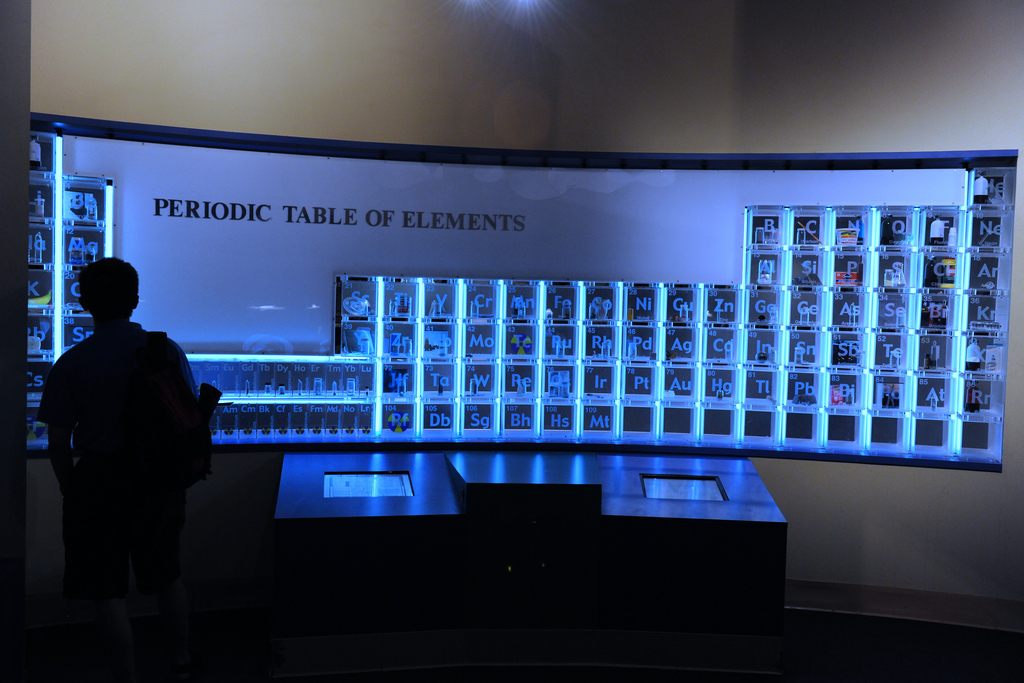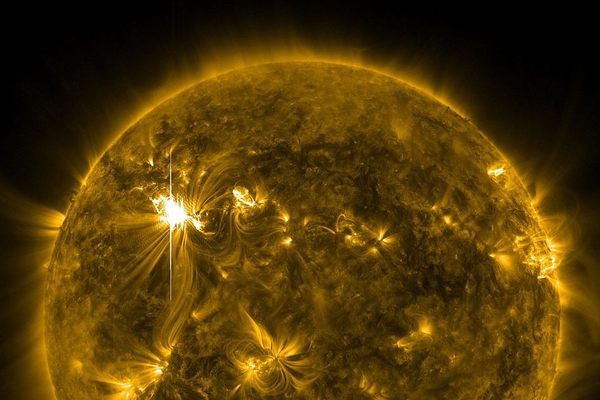They’ve Finally Named 4 New Elements
One for a city, another for a state, a third for a country, and a fourth for a living scientist.

(Photo: Ed Uthman/CC BY 2.0)
Last January, the International Union of Pure and Applied Chemistry announced something big: four new elements. All super-heavy—meaning they each contain a high number of protons—the elements resided near the bottom of the periodic table of the elements, awkwardly given placeholder names like ununtrium and ununseptium.
But on Wednesday, the IUPAC said they had decided on four more pronounceable names for the elements, which are numbers 113, 115, 117, and 118 on the periodic table.
Element 113 is now nihonium (Nh), 115 is muscovium (Mc), 117 is tennessine (Ts), and 118 is oganesson (Og).
Do some of those names sound familiar? They should. Tennessine is named, of course, for the state of Tennessee, which IUPAC said had been an important center of heavy-element research. Muscovium is named for Moscow, where some of the experiments in discovering the elements were held. And nihonium, is named for Nippon, or Japan, where nihonium was discovered, the first such discovery for an Asian country.
Finally, oganesson is named for Yuri Oganessian, a Russian scientist who is credited with numerous advances in heavy-element research. Oganessian is just the second living scientist to be have an element named for him, after Glenn Seaborg, an American scientist who discovered 10 elements. Seaborgium, element 106, was named for Seaborg in the 1990s, though only after a huge controversy.
The new names, though, are not official yet. IUPAC says there will be five months of public review before the names might be formally approved in November. Care to weigh in? Try contacting them.















Follow us on Twitter to get the latest on the world's hidden wonders.
Like us on Facebook to get the latest on the world's hidden wonders.
Follow us on Twitter Like us on Facebook